Trek-Segafredo: We're not going to push Degenkolb or Contador onto disc brakes
Team in test mode but may race discs in July, says Matt Shriver
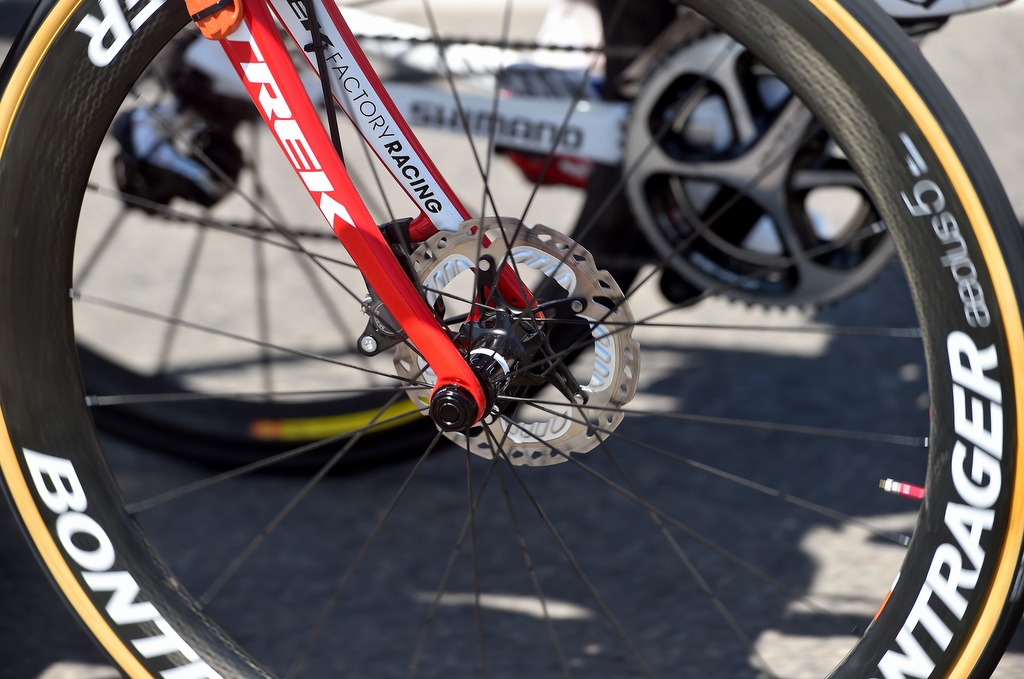
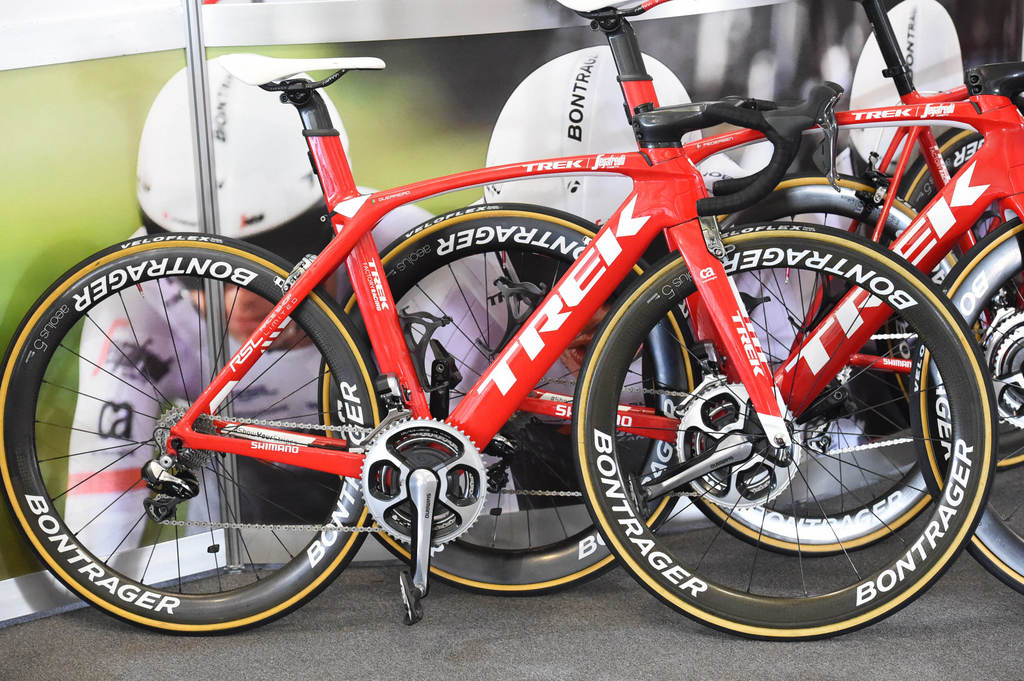
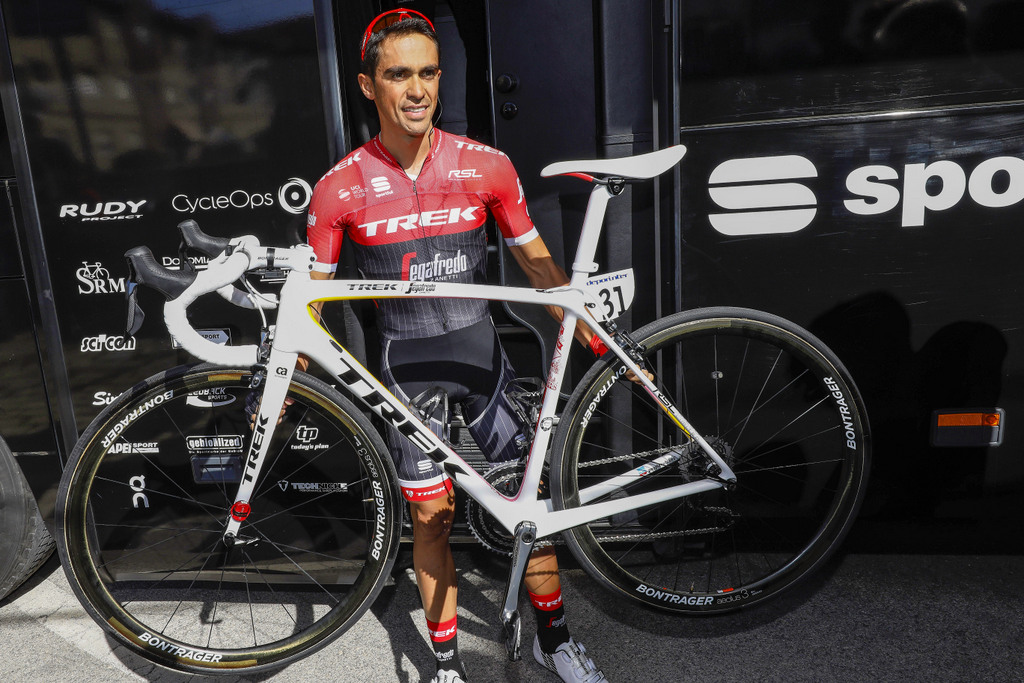
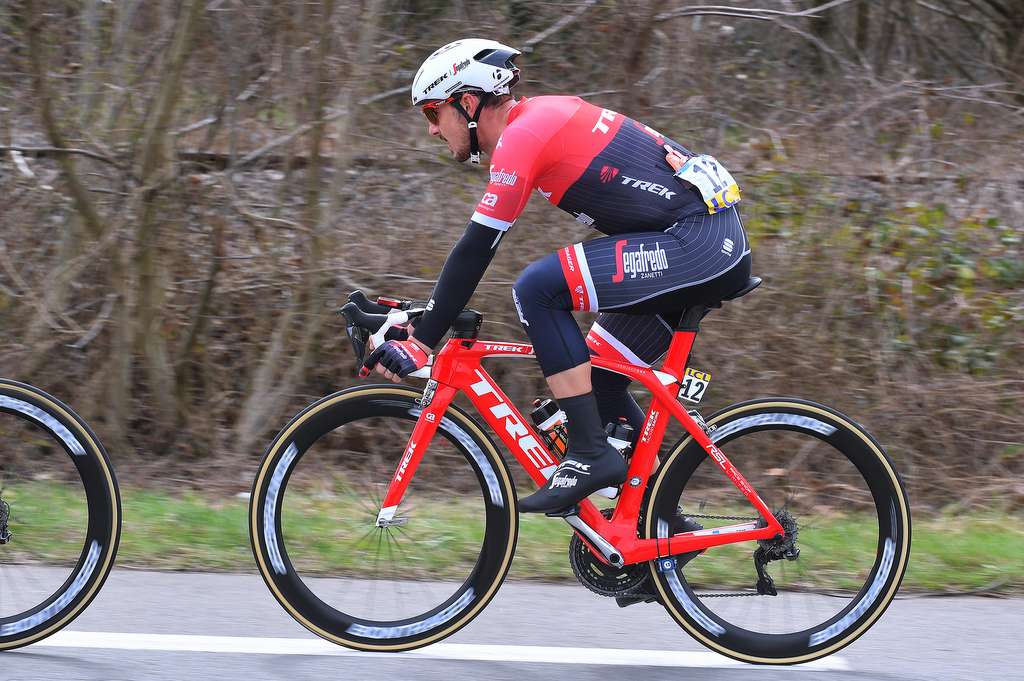
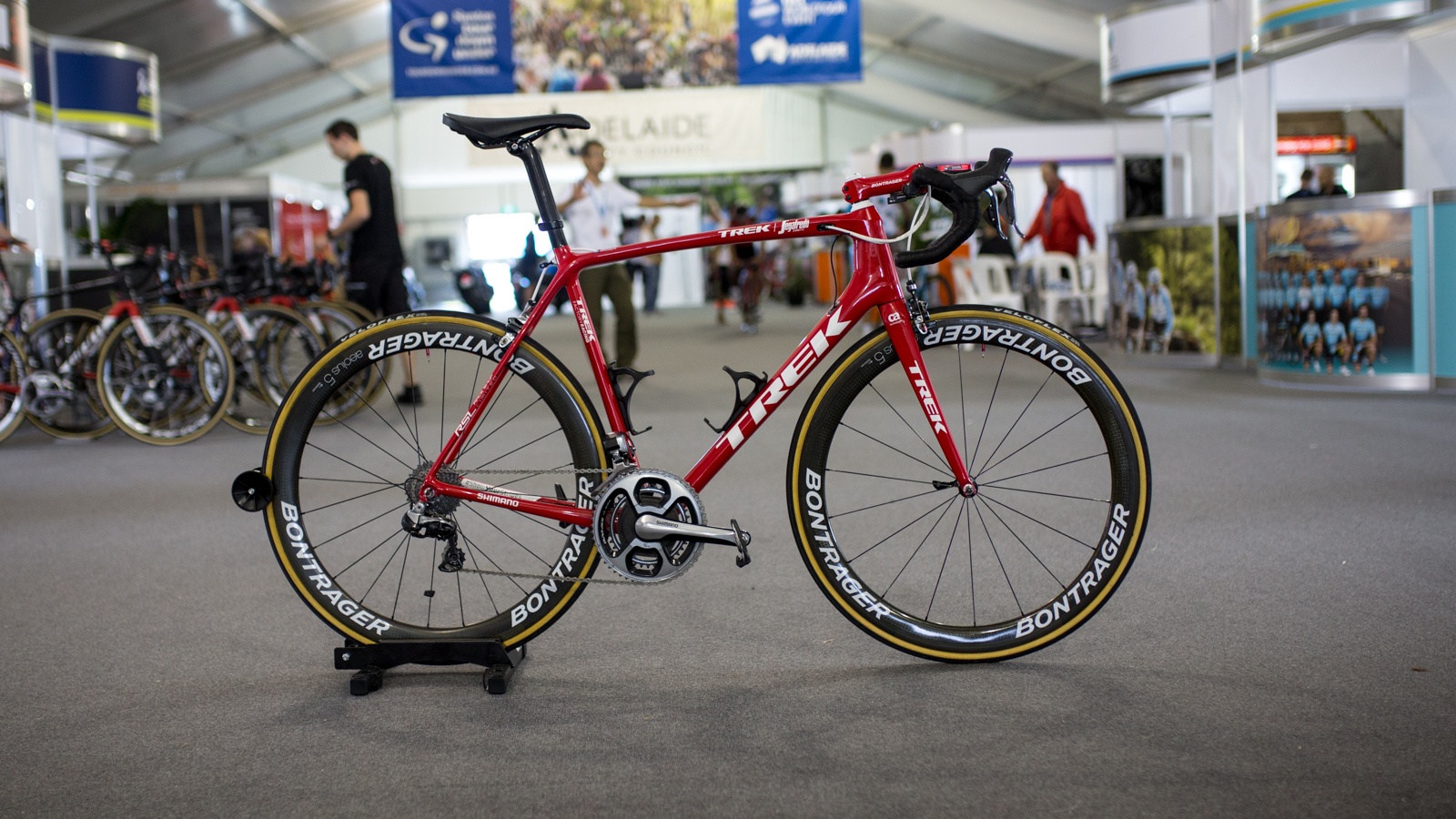
While several teams and manufacturers have made their first forays into the world of disc brakes, Trek-Segafredo have actually taken a step back and put their plans on hold for the time being. That decision, according to Matt Shriver, the Technical Director for Trek-Segafredo, is down to timing, and an unwillingness to push riders onto a technology they are not yet comfortable with.
Irizar debuts disc brakes in Vuelta a Espana peloton
Tour of Flanders: Lampre-Merida become first WorldTour team all on disc brakes
Disc brakes: 'Someone might have to take a bullet for change to happen,' says Hansen
Fizik investigating if disc brakes can slice through its shoes
So far Specalized and Cannondale have led the way in terms of supplying WorldTour outfits with disc brakes. Marcel Kittel and Tom Boonen have raced on the new systems for QuickStep, while Cannondale-Drapac have used the tech during different points in the season so far. World Champion Peter Sagan has used disc brakes in training but has not yet taken the plunge in competition.
Trek-Segafredo riders, like Sagan, have used disc brakes in training, with several of then sharing pictures on social media. However the topic of disc brakes is compounded by a number of overlapping elements. Not all manufacturers are ready and many, like Trek are either in the testing phase, or do not produce a disc brake bike at all. There is also the safety concerns raised by several riders over the potential threats that discs can carry – whether that be related to the rotors or the braking difference when compared to their rim counterparts.
"We're still in the testing phase, like a lot of teams are. As a company we're not pushing the riders either way," Shriver recently told Cyclingnews.
"We make both disc brake bikes and rim brake bikes, so we like to give them the choice. So far there's a lot of interest in discs but not enough to go full on either way."
Trek have spent time and resource in development around disc technology. Their new Classics star, John Degenkolb, was originally slated to ride on disc brakes at Paris-Roubaix this season, but that plan was shelved over timing, with Shriver insisting that no product would be rolled out until the riders were comfortable.
"We had some plans to race disc brakes in Roubaix but we weren't able to get the perfect setup for some of our leaders like John so we've put that on the back burner," he said.
Get The Leadout Newsletter
The latest race content, interviews, features, reviews and expert buying guides, direct to your inbox!
"We've just been waiting for new Shimano stuff to come. It's a lot more ergonomic for the riders and matches up with their current bikes. That's one of the things that we were waiting on for Paris-Roubaix and Shimano did a great job trying to hit our deadline but our deadline was a little too soon. We couldn't get the exact set-up that we wanted for John and in all fairness to them we were pushing really hard with an unrealistic deadline."
Read more on this article:
- Contador to debut custom Trek Emonda at Ruta del Sol
- Neutral Support companies brace for disc brake mayhem
- Sagan testing a Specialized Venge ViAS Disc bike before Tour Down Under
- Fausto Pinarello: We don't think a high-performance bike needs disc brakes
- Kittel disc brake success sparks debate in the Dubai Tour peloton
- Disc brake debate reignites as CPA set to clash with UCI
- Are road disc brakes dangerous?
The current plan is for Trek-Segafredo riders to go through another period of testing that includes the disc brakes and Shimano's new groupsets. Alberto Contador is not currently testing a disc brake bike in training but if all goes well Trek-Segafredo riders will be on disc brakes at races in July. Just not at the Tour de France.
For Shriver the glaring issue isn't over rotors, or the running battle between the UCI and their trial and the CPA, but over athlete education. He admits that his industry as a whole has made mistakes in their rollout of the new product, but he stands by the technology.
"I feel like the bikes are ready and the components are ready but the riders need time," Shriver said.
"It's so new, and it's so different that you can't just put it underneath them at races and expect it to all be fine. We need to give them some time to ride on them at home, educate them, and the staff, and letting them all feel comfortable.
"As an industry we've not done a good job of introducing this new technology that can be a real benefit to them. We've still got some hurdles to get over. Weight is one, and they need to see the braking advantage overcome the weight. We'll keep testing, keep educating and make sure they're comfortable. Them we'll put it in some races later in the year."
The main area of concern, raised by riders themselves has surrounded the safety of disc brakes. Last month Owain Doull claimed that Marcel Kittel's rotor cut through one of his shoes and cut his foot, and Fran Ventoso suffered a severe injury last year, again due to a reported ‘hot disc' cutting through skin.
While the CPA and UCI look at easing tensions and drawing up safety concessions the on going trial of disc brakes means that they will be used for the foreseeable future. For Shriver the technology is safe, but again it's about education and working through any concerns that the athletes have.
"I don't think it's unsafe to have disc brakes being raced right now. I understand what the riders are concerned about but that's an education thing. Have we as an industry done a good job at communicating with all the other partners, including the teams, that there's not a safety issue? They have some concerns. Some are legitimate and some aren't, in my opinion. We've just not done a great job of saying ‘it's not unsafe and here's why.'
"I don't think other manufactures are creating an unsafe peloton. This is a big change and it's a big change for everyone. It's one that we really need to be careful with. I think it's a positive step but we need to be careful on how we roll it out in the peloton. Some of that may have hurt us initially, in that it came too quick and the proper steps weren't taken at first.
"I think they're safe. Right now in the peloton you have a lot of different carbon wheel manufactures with different brake pads and different tire glue. There are a lot of issues already in breaking performance in the peloton. Some of what the riders say is justified, when you mix disc brakes with a very poor performing rim brake wheel system."
Whatever the system, Shriver added that riders would be given the best equipment available. When asked if the introduction of disc brakes was to purely add a revenue stream to manufacturers' coffers, he said: "We always like to race what we sell. Other manufacturers do also but we want our riders on the best equipment. If that's a rim brake that's fine for us. That's why we've not pushed our riders either way. If they say that they want to ride rim brakes then we're happy to keep making rim brake bikes. If that's the best tool possible then we want to give it to them."
Daniel Benson was the Editor in Chief at Cyclingnews.com between 2008 and 2022. Based in the UK, he joined the Cyclingnews team in 2008 as the site's first UK-based Managing Editor. In that time, he reported on over a dozen editions of the Tour de France, several World Championships, the Tour Down Under, Spring Classics, and the London 2012 Olympic Games. With the help of the excellent editorial team, he ran the coverage on Cyclingnews and has interviewed leading figures in the sport including UCI Presidents and Tour de France winners.
